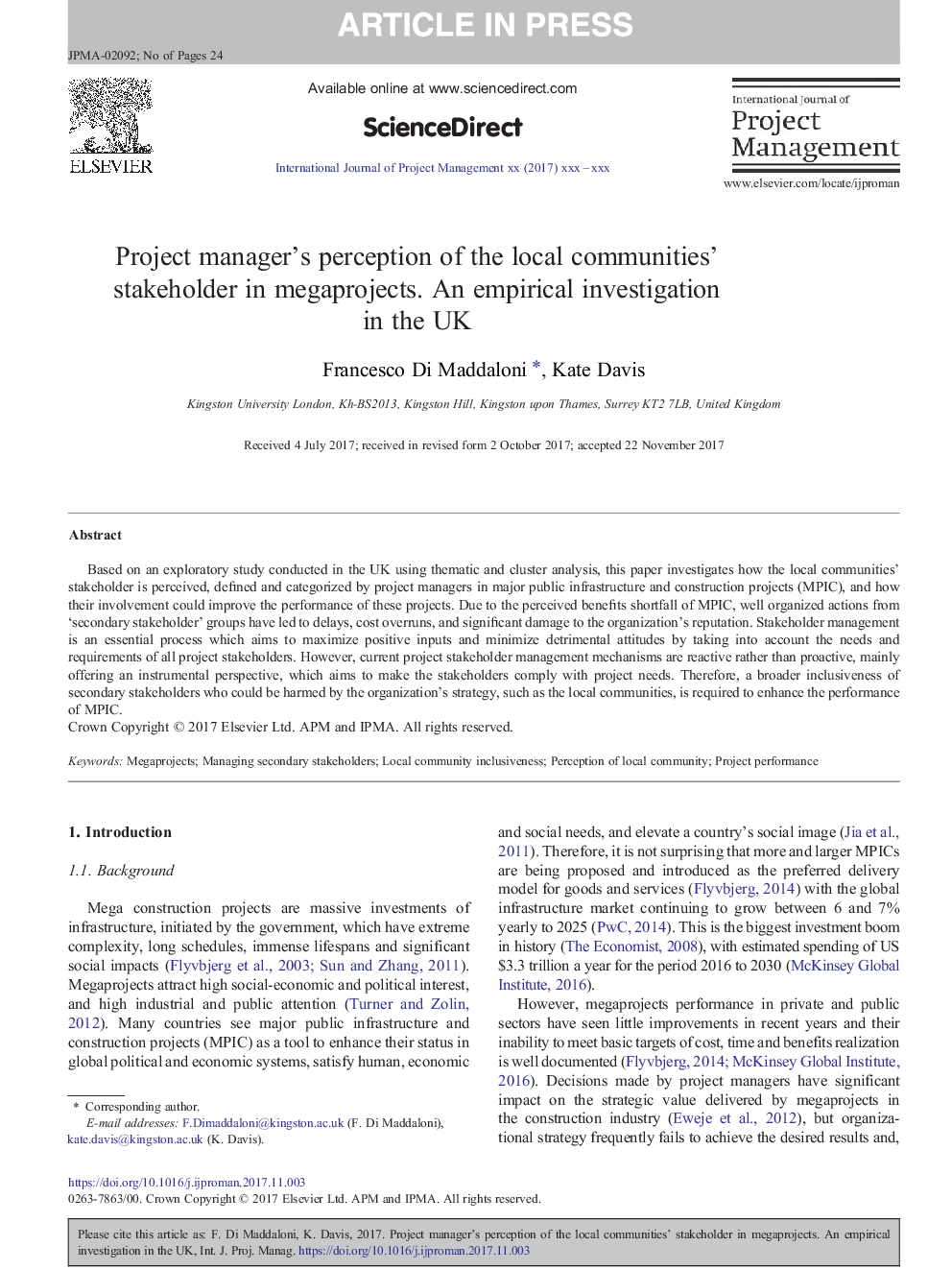| Article ID | Journal | Published Year | Pages | File Type |
|---|---|---|---|---|
| 6748041 | International Journal of Project Management | 2018 | 24 Pages |
Abstract
Based on an exploratory study conducted in the UK using thematic and cluster analysis, this paper investigates how the local communities' stakeholder is perceived, defined and categorized by project managers in major public infrastructure and construction projects (MPIC), and how their involvement could improve the performance of these projects. Due to the perceived benefits shortfall of MPIC, well organized actions from 'secondary stakeholder' groups have led to delays, cost overruns, and significant damage to the organization's reputation. Stakeholder management is an essential process which aims to maximize positive inputs and minimize detrimental attitudes by taking into account the needs and requirements of all project stakeholders. However, current project stakeholder management mechanisms are reactive rather than proactive, mainly offering an instrumental perspective, which aims to make the stakeholders comply with project needs. Therefore, a broader inclusiveness of secondary stakeholders who could be harmed by the organization's strategy, such as the local communities, is required to enhance the performance of MPIC.
Keywords
Related Topics
Physical Sciences and Engineering
Engineering
Civil and Structural Engineering
Authors
Francesco Di Maddaloni, Kate Davis,
